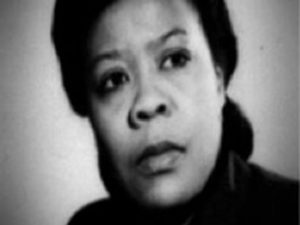
By Sis. Tarpley, NDG Religion Editor
Each year we take time out to recognize the achievements of women who have shaped history, technology, healthcare and more. We invite readers to go beyond the headline names they are perhaps familiar with and discover the countless African American women and others who have created products, services and devices we use daily.
Bessie Blount Griffin, Physical Therapist and Inventor who worked with injured soldiers during World War II. She recognized their need and desire to do more on their own, and she invented an assistive device that permitted people who had lost limbs to feed themselves.
Sarah E. Goode was the first Black woman to be granted a patent by the U.S. Patent and Trademark Office, for her invention of a folding cabinet bed in 1885. She showed other Black women the possibilities.
Marie Van Brittan Brown, a nurse and who invented a precursor to the modern home TV security system. The crime rate was high in Brown’s neighborhood, and the local police didn’t always respond to emergencies. The Browns filed a patent for their closed-circuit television security system in 1966, and it was approved on December 2, 1969.
Sheila Lynn Jeter, patents for creating a nonlever driven toaster; hand-held, multi-functional devices in one housing including a stapler, staple remover, pencil sharpener, hole punch, calculator, tape measure, architectural and engineering scale.
Lyda Newman, an inventor and women’s rights activist. She received a patent for an improved model of hairbrush. She also fought for women’s right to vote, working with well-known women’s suffrage activists.
Alice Parker, a heating unit that would warm up your house and regulate its temperature. The heating furnace provided central heat throughout a house.
Shirley Ann Jackson, she first developed an interest in science and mathematics during her childhood; a graduate of MIT she received a bachelor, and doctoral degree, all in the field of physics; she was the first Black woman to earn a Ph.D. from MIT. Jackson also fostered advances in telecommunications inventing the portable fax, touch-tone telephone, solar cells, fiber optic cables, and the technology behind caller ID and call waiting. She fostered advances in telecommunications inventing the portable fax, touch tone telephone, solar cells, fiber optic cables, and the technology behind caller ID and call waiting.
Annie Easley, she was a computer scientist, mathematician, and rocket scientist. She was a leading member of the team which developed software in Computer Codes for the Centaur rocket stage and one of the first Blacks to work as a computer scientist at NASA. She started working for NASA in 1955 for the Lewis Research Center of the National Aeronautics and Space Administration (NASA) and retired 34 years later.
Madeline M. Turner was an American inventor. She invented Turner’s Fruit-Press, which paved the way for further development of the fruit press. She was granted U.S. Patent 1,180,959 in April 25, 1916 and exhibited her invention at the Panama–California Exposition. Turner lived in Oakland, California. Her fruit press allowed fruit to be pushed into an opening and cut in half. The fruit would be shifted between different plates until juiced. The press resembled a form of an assembly line. The fruit press was called “ingenious” by a patent review committee member.
Erica Baker, (born 1980) is an engineer and engineering manager in the San Francisco Bay Area, famous for being outspoken in support of diversity and inclusion. She has worked at several companies, including Google. She attained notoriety in 2015 for revealing that she had started an internal spreadsheet where Google employees reported their salary data, to better understand pay disparities within the company.
Based on the spreadsheet, a number of her colleagues were able to negotiate pay raises. Baker reported that a number of her colleagues sent her peer bonuses for starting the spreadsheet, but her peer bonuses were denied by management. The spreadsheet sparked discussion on Google’s pay disparities, non-transparency in pay determination, and potential gender and ethnicity differentials in pay.








